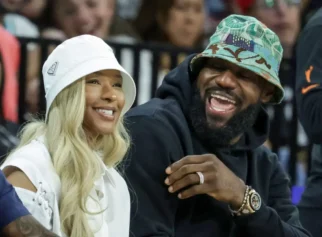The best thing about LeBron James going back to Cleveland last summer was that it showed he controlled his career, that he was his own man, that he was unafraid of disappointing or making angry fans in Miami.
He was admittedly uneasy about his return to Miami yesterday, but it was encouraging that he overwhelmingly received applause and love, because that was all he deserved. At once, James was the catalyst to reinvigorating a floundering franchise and a downtown that was mired in a drastic economic slump.
In four years, James led the way to four NBA Finals appearances and two championships. Heat tickets were the hardest to get in the league. Going to see James, matched with Dwyane Wade and Chris Bosh, was an event, a happening. Miami became more than the city to pass through en route to South Beach.
As a franchise, the Heat’s value doubled, from $364 million in 2010 to $770 million in 2014, according to Time magazine. That increase speaks to what economists call the “LeBron Effect.”
Downtown near and around American Airlines Arena, once close to barren, saw restaurants and lounges spring up as James’ presence facilitated action downtown like never before.
“He certainly did help the bottom line,” said Alyce Robertson, executive director of the Miami Downtown Development Authority to the Daily Business Review. “When the team was in the finals, we got a lot of free publicity with our skyline being projected across the world, and so a team that is rebuilding is not going to get that kind of media coverage.”
The Heat’s average ticket price was the highest in the NBA last season at $245. They sold out every game. An economist estimated that a home playoff game generates about $15 million a game in local revenue, and Miami played more home playoff games in James’ tenure than any other club in the league.
“I gave everything and more to this city when I was here,” James said after his team lost to Miami yesterday. “I never disrespected this city or the franchise or any of my teammates. (I did) everything as a professional and I gave it all. That’s all I can do.”
That’s why James received what he deserved yesterday, from the overwhelming amount of fans at the sold out arena: love. A video tribute in the first quarter showed that the franchise got it.
“A lot of emotions come back and you know, I spent four years here with those guys, man, and some guys are still here, some guys are not here. We put in a lot of hard work and dedication just to do the best we could,” James said.
The LeBron James Effect traveled back to Cleveland, where his presence the first time around grew Cleveland’s downtown. Now, though, finance professor LeRoy Brooks of John Carroll University, near Cleveland, estimated that James’ return to his home state could be worth $500 million to the local economy. In ticket sales alone, James’ presence could earn the franchise $129 million more than last season.
“The Cleveland fan can expect the LeBron Effect to provide a lot more positive and less negative experiences then most of them have had in any prior year, or imagined that they would ever see in the future prior to LeBron’s announcement,” says Brooks. “Many would view this as priceless.”
Miami fans apparently understood that James’ four-year presence there was priceless. It honored him appropriately in his first return. And he deserved it.


